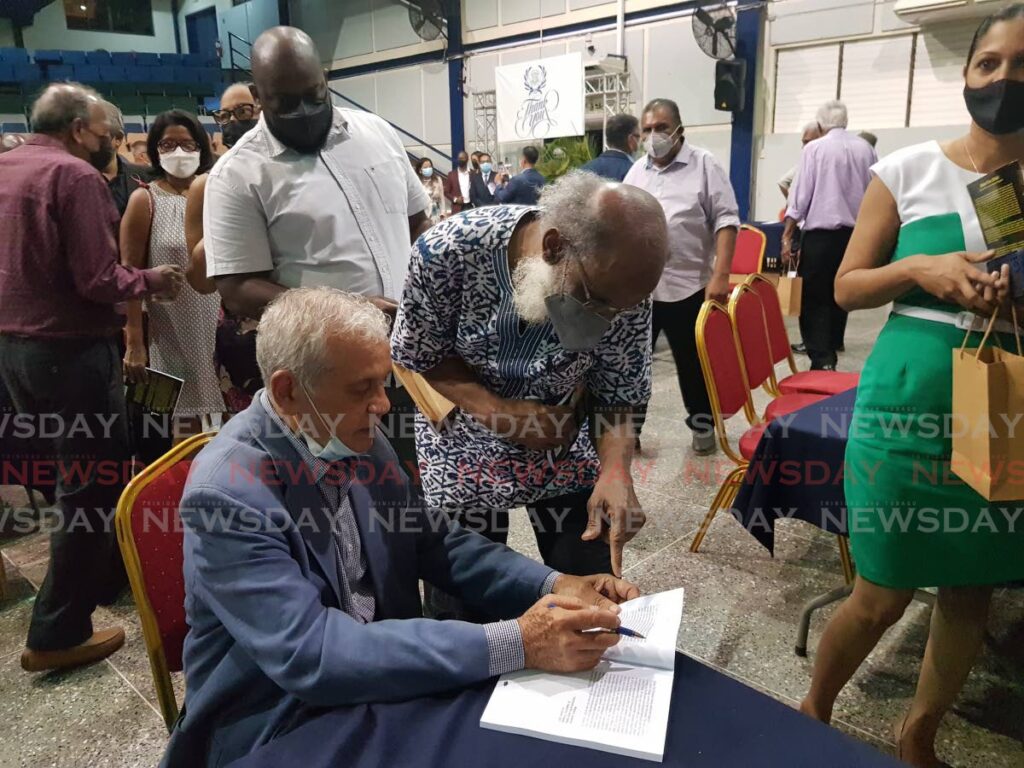Historian tells PNM, UNC: Stop blaming Williams, Capildeo for Trinidad and Tobago’s ethnic divide

HISTORIAN and former politician Prof Brinsley Samaroo says it is time Trinidadians and Tobagonians, “affected by inter-ethnic antagonism," understand the genesis of the ethnic divide and stop blaming the late Dr Eric Williams and Dr Rudranath Capildeo for the continuing polarisation.
He said both analyses by supporters of the People’s National Movement (PNM) blaming Capildeo, and the United National Congress (UNC) blaming Williams for the racial intolerance are wrong as it is “the British who set this up.”
He said this “foolish” talk must end and called for a re-socialisation and re-education of the whole society for people to stop creating fissures and continuing to water them.
“Because we are being used as gamecocks that have nothing against each other but fight each other.”
He advocated for constitutional reform “to virtually compel the two ethnicities to come together and work in a new political arrangement.
“I have found in my long political career, that the difference we imagine and the differences that we talk about outside do not operate at the parliamentary level. There is much more camaraderie. So I am saying we need constitutional change to bring the ethnicities together for the greater governance of Trinidad and Tobago.”
He said the cleverly devised policy of divide et imperia (divide and rule) was not peculiar to TT, where the British split the races that would have threatened their power. He said it happened in Cyprus, where Turkish and Greek Cypriots are still divided, in India, where the same happened to Muslims and Hindus, and in Nigeria and Guyana.
“It is a philosophy the British created to keep us in subjection. No Indians hated Africans or vice versa. We were taught to do that by a regime that saw that as their only way of survival,” he said at the launch of his latest book – Adrian Cola Rienzi – The Life and Times of an Indo-Caribbean Progressive.
The launch on May 14 at Naparima College attracted past and present politicians, including Winston Dookeran, Nizam Mohammed, Vasant Bharat, Trevor Sudama, Rudranath Indarsingh, Brian Manning, Junia Regrello, David Abdulah, and former senators Israel Khan and Larry Lalla.
In his book, Samaroo explores the coming together of the two major races under Rienzi and Tubal Uriah “Buzz” Butler during the turbulent 1930s, in a battle against opppression by the British empire, describing it as a watershed movement.
“The history of TT and the rest of the Caribbean was never the same after these disturbances of 1937. What happened in TT in 1937 under Butler and Rienzi was like a flambeau which ignited the rest of the Caribbean.”
Noting the emergence of new political parties and commentary of a leader not wanting “racist Indian parties,” Samaroo said, “If they don’t want racists, they have to create new people, they have to manufacture new Trinbagonians. Because you are all infected with the seed of inter-ethnic antagonism that the British set up.”
Samaroo encouraged young people to get involved in politics.
“You can do nothing by just standing up and pelting stones from the outside. From my own long experience, I think being in the politics is a very rewarding experience.”
He advised political aspirants to embrace the lessons of Rienzi and Butler and engage the community in order to plot a progressive way forward.
“This is where the conversation has to take place, not in the UWI, in the comfort of those surroundings where so many of my colleagues pontificate about the politics, totally scared to enter the political realm and to walk the plank as politicians.”


Comments
"Historian tells PNM, UNC: Stop blaming Williams, Capildeo for Trinidad and Tobago’s ethnic divide"